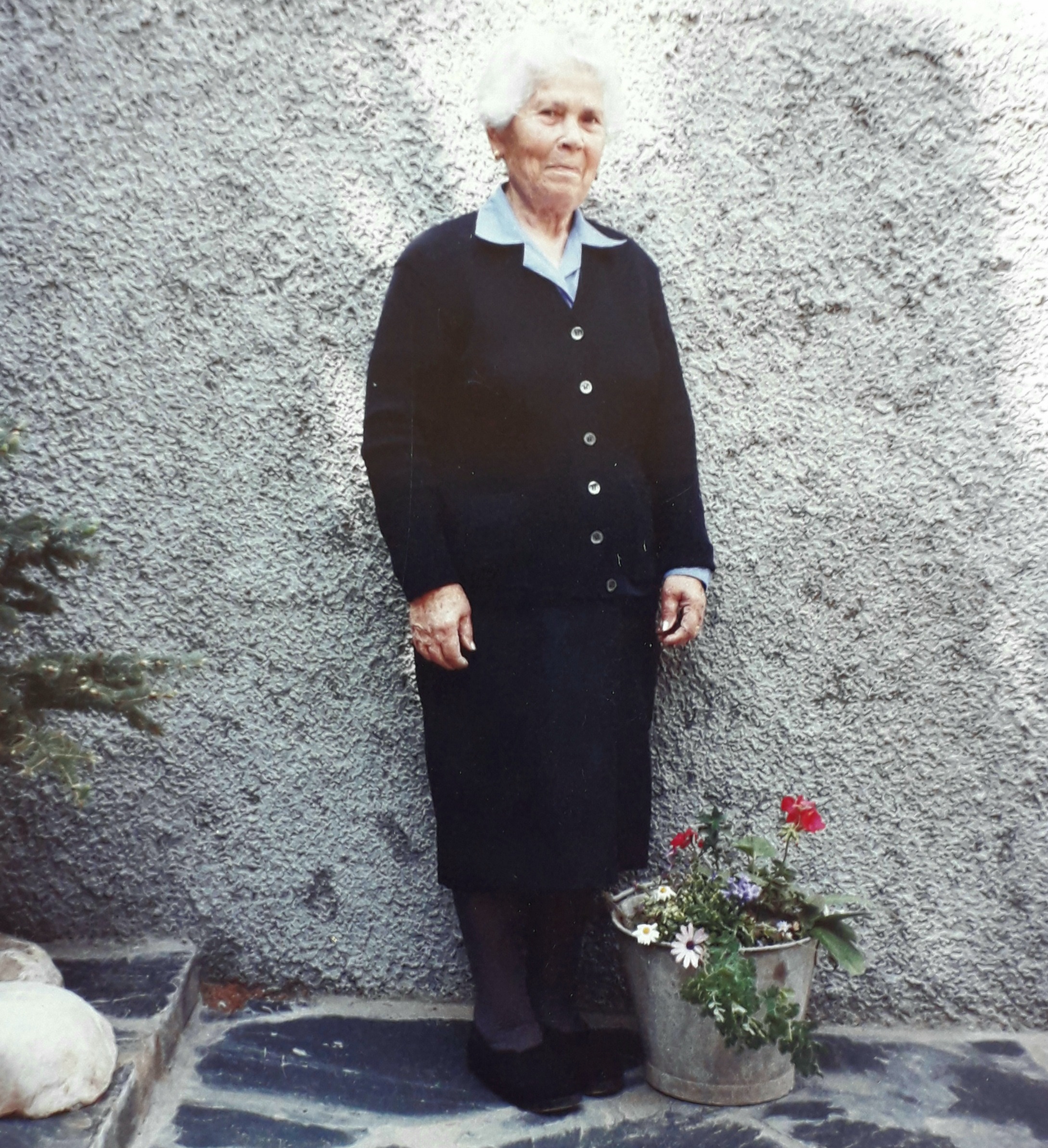She used to fold white paper napkins into four and use just one quarter to wipe off a little spill.
She’d then keep the rest in the pocket of her pink, well-worn, flowered apron for later. (I still do that, too.)
My grandmother, her daughter, quickly became modern and acquired new habits. She started using paper rolls for wiping the recently remodeled, black granite kitchen countertop instead of the colorful, reusable cotton cloths she had always used—we had always used—up to that day.
Single-use napkins became common at my grandparent’s house, even for us children, to avoid all that washing, as the TV was advertising at the time.
Iaia Patro, how we called my grounded great-grandma, was puzzled by this bizarre concept—using something and throwing it away after one single use. “Really?”
Her face would be incredulous, her eyebrows with a slight frown, not too wrinkly for her age. Her bright white, wavy fringe slightly stirred. She was still able to think independently.
Common sense had lost its ground to fast fashion in one generation.
Patro was lively in her 80s. She would play pétanque with my great-grandpa in the sparingly-furnished park in the neighborhood. She went swimming once a week at the district’s warm water pool, with her full-body swimming gear and loose bonnet. She was discrete, humble yet elegant—a petite, small-town girl.
She inspired me to never let age limit my activity.
Her tiny attic’s huge terrace, bathed in the sun for most of the daylight hours, was where she spent many an afternoon. There she potted and repotted her bright pink, rose, maroon, and crimson geraniums. They were all from that particular species with round, touch-me-please velvet textured leaves.
You could see her utterly enraptured in her geranium world, watering can in hand, pruning with her adorable, tan, worn, chubby hands. She dedicated close attention to every single one of the dozens of unevenly sized clay pots, orderly lined up along the terrace’s waist-height, whitewashed, brick wall. Her geraniums, like herself, live on in my balcony and garden. They keep me cheerful company.
I owe my fluency in Castilian directly to her. She was the only one out of my eight great-grandparents who was of Spanish origin. The rest of my ancestors are all Catalan, have been for many generations, mainly from Barcelona and the Pyrenees mountains region. However, her native town, Caudete, had been part of the Catalan-speaking Valencian kingdom for centuries before falling under Moorish (later Spanish) rule. (Basically, she had ancient Catalan roots, too, in a way.)
Frugal with words, she spent most of her time in silence. Often simply contemplating. I sometimes judged this trait to be odd, but it was unknowingly reassuring for me. I felt at ease in her presence. I was shy and introverted as a child. Meditative. And would speak only when it was necessary like she did.
She expressed more often through her hands than she did with words. And her love for handicrafts was also passed down without me even realizing it.
Patro made little sculptures out of different materials that she would glue together: small, smooth, latté-colored seashells to form sailboats, little houses, deer. The flat, sharp-pointed, light brown, wooden toothpicks intertwined to form abstract, spiraling shapes. Nothing fancy. Just her creativity playing with small items found close by.
We would call it up-cycling now.
One could say her home decoration echoed her quietness. It was just her creations and some simply framed family portraits—memories of good times saved from forgetfulness—without any real emotional attachment to any of them. It almost feels like I’m describing my current place.
As a teenager, the ancient rite of weaving time, patience, and presence into wool and flowing fingers was gracefully transmitted by her natural slow rhythm that matched my own. This yielded my first scarves, which I continue to wear every autumn. The faulty knots mark the sacred instants of wisdom being offered from beginningless time into a first new moment.
One thing that is still pending for me to learn from her, even if she isn’t in this world in the flesh anymore, is crafting colorful blankets, sofa cushion covers, and bed socks out of crochet squares. She made dozens of them—for all of us, her great-grandchildren—in her gentle, hushed, unhurried manner.
Patro, if you can hear me, please send some of your serene, perennial magic when I crochet so that I can weave it into our blankets, and we may feel your warm presence close to our hearts.
I miss you, Iaia.











Read 16 comments and reply